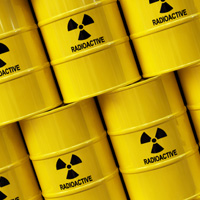-
Grants
16
-
Total Awarded
$9,679,700
-
Years
1986 - 2020
-
Categories
Grants
Founded in 2003 with Foundation support, the King’s College London (KCL) Centre for Science and Security Studies (CSSS) seeks to generate new knowledge and understanding of the intersections of science, technology, and security. CSSS takes a multi-disciplinary approach to advancing knowledge and understanding of nuclear security with an emphasis on producing relevant research to policymakers and other practitioners. This award supports research, analysis, and policy papers on Brexit, sanctions, and nuclear policy. The project will explore the changing security context in Europe as the United Kingdom exits the European Union, particularly, what it means for nuclear deterrence and strategic stability. Outcomes include more informed policymakers in the United Kingdom and Europe.
Founded in 2003 with Foundation support, the King’s College London (KCL) Centre for Science and Security Studies (CSSS) seeks to generate new knowledge and understanding of the intersections of science, technology, and security. This award supports general operating expenses, including for the evolution of CSSS into a stand-alone institution within KCL, and for several specific research projects including the continuation of Project Alpha, a project that works to understand and counter illicit nuclear trade.
The Centre for Science and Security Studies is the focal point for nuclear security research, training, and education at King’s College, London. This project, "Trends in Illicit Iranian Procurement," will collect, organize, analyze and disseminate data on illicit attempts by Iran to procure nuclear-, missile- and military-related technologies and materials from private firms. This research will help shape policy, enforce sanctions, and educate companies on identifying illicit procurement attempts. Funds will be used for researcher salaries, travel, and administrative expenses. The project fits the Foundation’s goal to support innovative research projects on security challenges presented by states such as Iran.
To train the next generation of experts in the field of nuclear security (over four years).
To support an interdisciplinary program of research and training to strengthen scientific advice on international security policy (over two years).
In support of an interdisciplinary program of research and training to strengthen scientific advice on international security policy (over three years).
To support an interdisciplinary program of research and training to reduce the dangers associated with weapons of mass destruction and to promote nonproliferation (over three years).
For a project to draw on European experience in counterterrorist activities and to assess capabilities for coordinated action among European countries and the U.S.
To support a fellowship program focusing on regional security in a global context (over three years.).
To support the research and training program Regional Security in a Global Context (over three years).
To support a project fostering research and interaction between young scholars in international security from the former Soviet Union and their colleagues at King's College London.
To support a research project on relations among former Warsaw Pact allies in post-Soviet Europe (over two years).
To support security studies in the former Soviet Union.
To support a project that fosters research and interaction between young scholars in security from the former Soviet Union and their colleagues at King's College.
To support graduate-level and postdoctoral training and research in peace and security studies (over three years).
To support students, for a study of European-Japanese strategic relations since 1952, and for a history of the FIrst World War as a formative influence on British policy (over three years).




